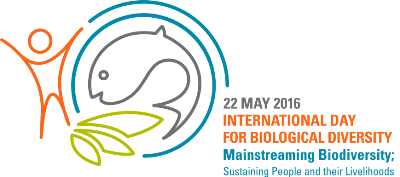Launched in 1998 as a joint venture of the International Centre for Missing & Exploited Children (ICMEC) and the US’s National Center for Missing & Exploited Children (NCMEC), the Global  Missing Children’s Network (GMCN) is a network of countries that connect, share best practices, and disseminate information and images of missing children to improve the effectiveness of missing children investigations.
Missing Children’s Network (GMCN) is a network of countries that connect, share best practices, and disseminate information and images of missing children to improve the effectiveness of missing children investigations.
The Network has 22 member countries: Albania, Argentina, Australia, Belarus, Belgium, Brazil, Canada, Germany, Greece, Ireland, Italy, Mexico, the Netherlands, New Zealand, Poland, Romania, Russia, Serbia, South Africa, South Korea, Spain, the United Kingdom, and the US.
Every year on May 25, GMCN members pay respects to International Missing Children’s Day, honoring missing and abducted children while celebrating those who have been recovered. Following the 1979 disappearance of 6-year-old Etan Patz in New York City, May 25 was established as Missing Children’s Day in the US by President Ronald Reagan in 1983.
In 2001, the tribute spread worldwide. ICMEC coordinates the Help Bring Them Home Campaign in 22 countries, in conjunction with International Missing Children’s Day, to spotlight the issue of child abduction around the world, and to suggest to parents some steps they can take to protect their children.



 World Day for Cultural Diversity for Dialogue and Development is annually held on May 21 to help people learn about the importance of cultural diversity and harmony.
World Day for Cultural Diversity for Dialogue and Development is annually held on May 21 to help people learn about the importance of cultural diversity and harmony.



 World Telecommunications Day celebrates the constant evolution of one of the most important factors of our lives: communication. The main goal of World Telecommunications Day (WTD) is to highlight the importance of communication and how information travels across the world. It also aims to increase awareness of how crucial communication is in our lives, and stimulate the development of technologies in the field.
World Telecommunications Day celebrates the constant evolution of one of the most important factors of our lives: communication. The main goal of World Telecommunications Day (WTD) is to highlight the importance of communication and how information travels across the world. It also aims to increase awareness of how crucial communication is in our lives, and stimulate the development of technologies in the field. The WHD was first inaugurated in May 2005 and has become an annual event ever since. The purpose of the WHD is to promote public awareness of hypertension and to encourage citizens of all countries to prevent and control this silent killer, the modern epidemic. The theme for World Hypertension Day is Know Your Numbers with a goal of increasing high blood pressure (BP) awareness in all populations around the world.
The WHD was first inaugurated in May 2005 and has become an annual event ever since. The purpose of the WHD is to promote public awareness of hypertension and to encourage citizens of all countries to prevent and control this silent killer, the modern epidemic. The theme for World Hypertension Day is Know Your Numbers with a goal of increasing high blood pressure (BP) awareness in all populations around the world.
 In 1997, at the request of the National Student Nurses Association, the ANA designated 8 May as National Student Nurses Day. In 2003, the ANA designated the Wednesday within National Nurses Week as National School Nurse Day. The National Association of School Nurses, however, claims that National School Nurse Day has been recognized since 1972.
In 1997, at the request of the National Student Nurses Association, the ANA designated 8 May as National Student Nurses Day. In 2003, the ANA designated the Wednesday within National Nurses Week as National School Nurse Day. The National Association of School Nurses, however, claims that National School Nurse Day has been recognized since 1972.